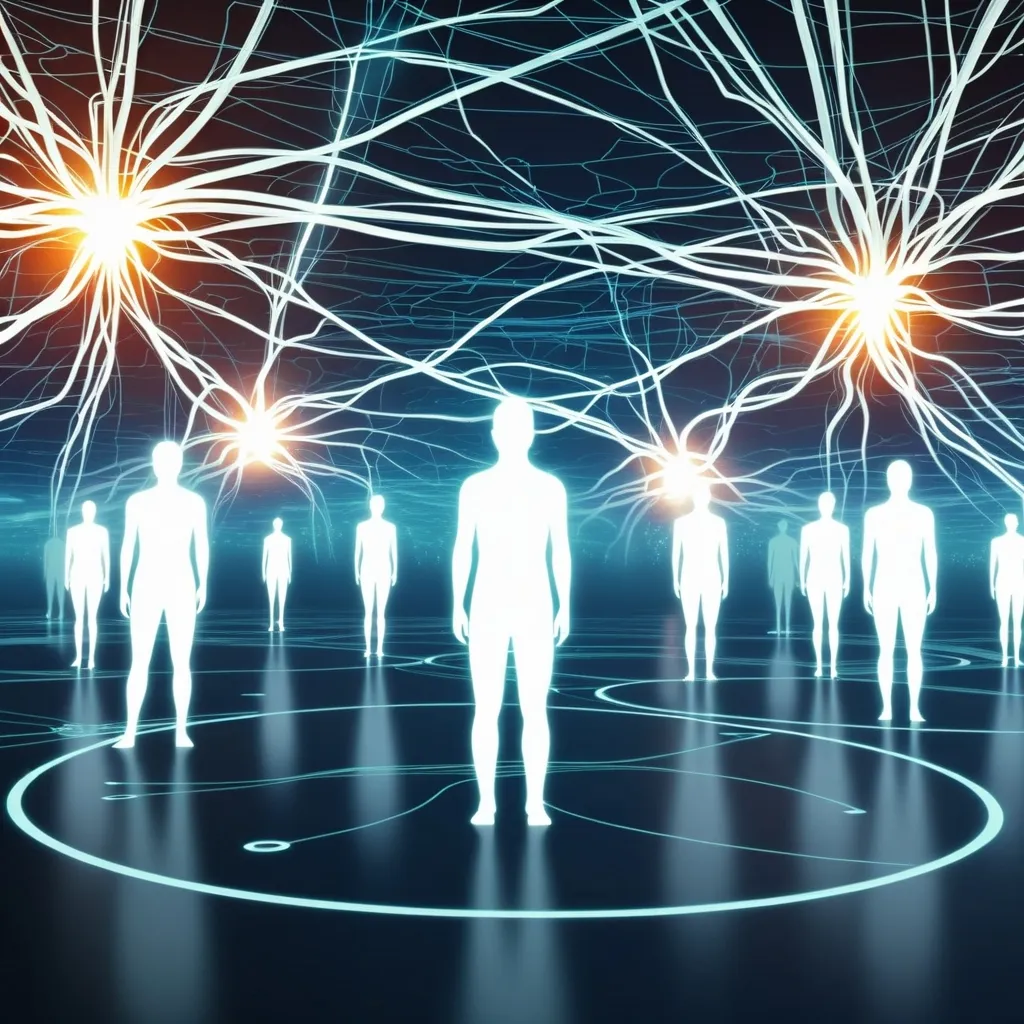The Digital Afterlife: Exploring the Future of Human Consciousness
Ever wondered what happens to your online presence after you’re gone? It’s a question that’s becoming increasingly relevant in our digital age. The concept of a digital afterlife is no longer just the stuff of science fiction - it’s a reality we’re starting to grapple with.
Let’s dive into this fascinating world where technology and humanity intersect in ways we’ve never seen before.
Imagine a future where you could upload your entire consciousness to a digital platform. Sounds wild, right? But that’s exactly what some scientists and tech enthusiasts are working towards. They call it “mind uploading,” and it’s based on the idea that our minds are essentially just really complex computer programs running on the hardware of our brains.
The theory goes that if we could map out every single neuron in your brain and how they’re all connected, we could create a digital copy of your mind. It would be you, but in a computer. Your thoughts, memories, feelings - everything that makes you, well, you.
But here’s where it gets really interesting. Once your mind is digital, you could potentially live forever in a virtual world. Think of it like a super advanced version of The Sims, but instead of controlling a character, you are the character.
Now, before you start planning your digital retirement, let’s pump the brakes a bit. This technology is still very much in the realm of speculation. Our brains are incredibly complex, with billions of neurons each making thousands of connections. Mapping all of that out is a mammoth task that we’re nowhere near achieving yet.
And even if we could do it, there are a ton of ethical questions to consider. Who would have access to this technology? Would it only be available to the wealthy? And what about the potential for abuse? Imagine if someone could hack into your digital mind - scary stuff!
These aren’t just hypothetical concerns. They’re issues we need to start thinking about now, because technology has a way of advancing faster than we can keep up with ethically.
But let’s bring things back to the present for a moment. While full-on mind uploading might still be a ways off, we’re already living in a world where digital afterlives are a reality.
Think about all the stuff you put online every day. Your social media posts, your emails, your photos - all of that stays out there even after you’re gone. It’s a kind of digital footprint that outlives you.
This digital legacy can be a source of comfort for loved ones left behind. It’s a way for them to remember you, to hear your voice or see your face again. But it can also be complicated. What if there are things in your digital history you’d rather not have people see after you’re gone?
And it’s not just about what you put out there yourself. In today’s world, our digital presence is often shaped by others too. Think about all the photos friends might post of you, or comments they might make about you online. All of that becomes part of your digital afterlife, whether you want it to or not.
It’s a bit like your reputation living on after you’re gone, but in a much more tangible, searchable form. And unlike traditional legacies, digital ones are surprisingly malleable. They can be edited, shared, and repurposed in ways the original creator might never have intended.
So what can we do about all this? Well, for starters, it’s worth thinking about what kind of digital legacy you want to leave behind. Some people are already planning for this, setting up digital “wills” that outline what should happen to their online accounts after they die.
But beyond personal planning, we need to start having bigger conversations about the ethics of digital afterlives. How do we protect people’s privacy and wishes after they’re gone? How do we ensure that digital immortality, if it ever becomes a reality, doesn’t just become another way for the rich to live forever while the rest of us have to deal with mortality?
These are big questions, and they don’t have easy answers. But they’re questions we need to start grappling with now, before the technology outpaces our ability to deal with it ethically.
The concept of a digital afterlife touches on some of our deepest human desires and fears. We’ve always dreamed of cheating death, of leaving something behind that outlasts us. Digital technology offers new ways to do that, but it also brings new complications.
As we move forward into this brave new digital world, we need to think carefully about what it means for our understanding of life, death, and everything in between. We need to consider how these technologies might reshape our society, our relationships, and our very sense of what it means to be human.
The digital afterlife isn’t just about what happens after we die. It’s about how we live now, in a world where our actions and words can echo long after we’re gone. It’s about the traces we leave behind, the memories we create, and the impact we have on others - both in the physical world and the digital one.
So next time you post a status update or upload a photo, take a moment to think about the digital legacy you’re creating. Because in this new digital age, our online lives are becoming just as important - and just as lasting - as our physical ones.
The future of human consciousness in the digital realm is a frontier we’re just beginning to explore. It’s exciting, it’s a bit scary, and it’s definitely going to change the way we think about life and death. As we stand on the brink of this new era, one thing’s for sure - the conversation about digital afterlives is just getting started.






